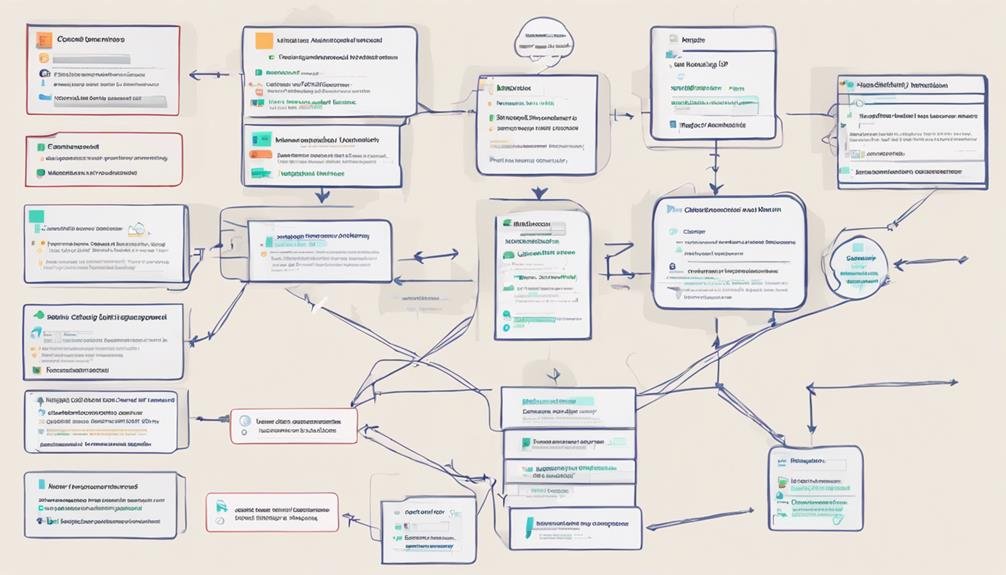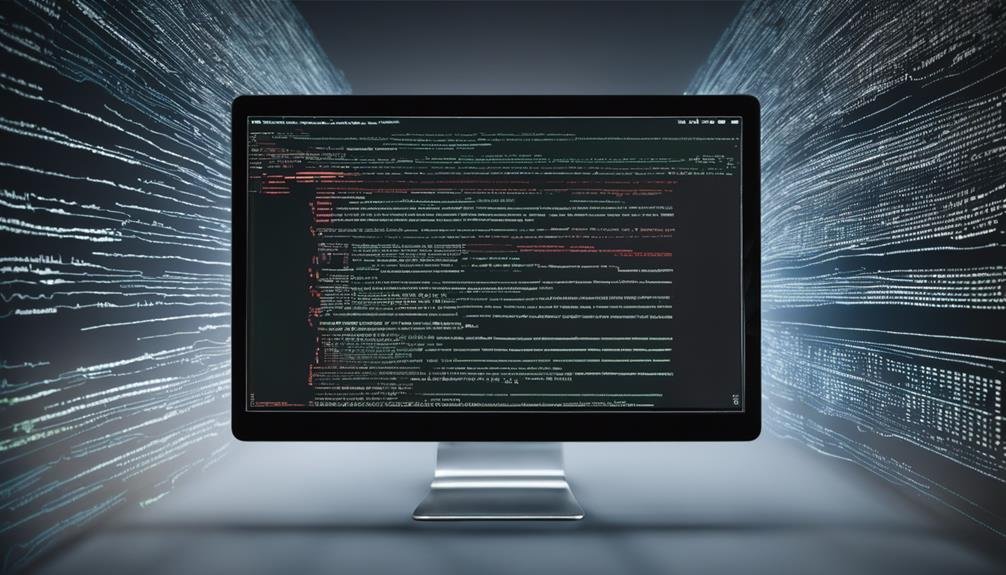Enhancing wallet security through smart contract audits involves identifying vulnerabilities like timestamp dependence and reentrancy attacks. The auditing process combines manual reviews with automated tools like Mythril and Securify to detect flaws efficiently. Smart contract audits prevent financial losses by ensuring compliance with coding standards and early vulnerability identification. Mitigating risks post-launch is crucial for ongoing security. Auditing costs range from $5,000 to $15,000, with firms like CertiK offering professional services. Secure transactions are prioritized to safeguard assets effectively. Understanding these key points is essential for bolstering wallet security through smart contract audits.
Brief Overview of How To Audit Smart Contracts For Security
- Conduct thorough manual and automated audits to detect vulnerabilities.
- Use tools like Mythril, Oyente, and Securify for in-depth analysis.
- Address timestamp dependency, function visibility errors, and reentrancy attacks.
- Implement auditing processes to prevent financial losses and ensure compliance.
- Engage reputable auditing firms like CertiK and Chainsulting for professional services.
Understanding Smart Contract Vulnerabilities
In delving into the domain of smart contract vulnerabilities, a comprehensive understanding of the potential risks is crucial for ensuring the security and reliability of blockchain-based systems. Common vulnerabilities such as timestamp dependency, function visibility errors, reentrancy attacks, random number vulnerabilities, and human-contract differentiation errors can compromise the security and integrity of smart contracts. Failure to address these vulnerabilities can lead to significant financial losses and erode trust in the system. Smart contract audits are essential in identifying and mitigating these vulnerabilities before deployment, enhancing wallet security.
Manual Auditing Process Overview

To guarantee the robustness of smart contracts, the manual auditing process offers a meticulous examination of the codebase to pinpoint vulnerabilities and enhance security measures. Manual auditing involves a detailed line-by-line analysis of the smart contract code to identify potential flaws, errors, and security risks. Here are five key aspects of the manual auditing process:
- Auditors focus on detecting code vulnerabilities that could compromise the security of the smart contract.
- The manual review process ensures that critical issues are not overlooked before deployment, enhancing the overall security posture.
- Manual auditing is a proactive approach to addressing vulnerabilities and minimizing the risk of exploitation.
- It complements automated tools by providing in-depth analysis and scrutiny of the codebase.
- By identifying and rectifying potential flaws through manual auditing, the smart contract becomes more resilient to security threats.
Automated Auditing Tools and Techniques

Automated auditing tools such as Mythril, Oyente, and Securify are essential in identifying vulnerabilities within smart contracts. These tools efficiently detect known security risks by conducting in-depth code analyses, helping prevent potential exploits. Integrating automated tools with manual reviews enhances the overall accuracy of smart contract audits.
Tool Accuracy Importance
Enhancing the accuracy of smart contract audits, automated auditing tools such as Mythril, Oyente, and Securify play an important role in detecting vulnerabilities within the code. These tools are vital for identifying smart contract code security risks and access control issues. To highlight their significance, here are five key points to ponder:
- Automated tools efficiently scan smart contract codes for vulnerabilities.
- They help in detecting common issues like reentrancy attacks and integer overflows.
- Automated auditing tools provide quick and thorough analysis, complementing manual reviews.
- Incorporating these tools in the audit process ensures a detailed examination for enhanced wallet security.
- Utilizing automated tools is essential for a robust smart contract auditing process.
Vulnerability Detection Efficiency
Given the critical role of automated auditing tools in uncovering vulnerabilities within smart contract code, the efficiency of vulnerability detection is greatly heightened by utilizing tools such as Mythril, Oyente, and Securify. These tools employ static analysis techniques to identify potential security vulnerabilities in smart contracts. Mythril focuses on common vulnerabilities like reentrancy, Oyente specializes in vulnerabilities such as transaction-ordering dependence, and Securify offers advanced analysis for gas estimation and resource consumption vulnerabilities.
By combining automated auditing tools with manual reviews, smart contract developers can guarantee thorough security assessments. This proactive approach helps identify and address security weaknesses early in the development process, enhancing the overall security posture of smart contracts.
Audit Report Automation
Streamlining smart contract auditing through automated tools and techniques facilitates the efficient detection of vulnerabilities and guarantees thorough security assessments.
- Automated auditing tools like Mythril, Oyente, and Securify enhance efficiency in detecting vulnerabilities.
- These tools use static and dynamic analysis to identify common smart contract vulnerabilities.
- Automation streamlines the auditing process by scanning code for potential risks and weaknesses.
- Automated tools provide quick code quality and security feedback, enabling proactive risk mitigation.
- Incorporating automated auditing tools ensures a complete and systematic approach to smart contract security assessment.
Key Vulnerabilities in Smart Contracts

What are the critical vulnerabilities that can compromise the security of smart contracts? Smart contracts, particularly those on the Ethereum blockchain, face various vulnerabilities that malicious actors can exploit. These vulnerabilities include reentrancy attacks, function visibility errors, and random number vulnerabilities. Reentrancy attacks occur when a contract makes an external call before finishing its internal state changes, allowing an attacker to manipulate the contract’s state. Function visibility errors can inadvertently expose sensitive functions, making them accessible to unauthorized parties. Random number vulnerabilities can allow attackers to predict outcomes when randomness is essential.
Additionally, human-contract differentiation errors and timestamp dependencies can introduce weaknesses in smart contract security. Addressing these vulnerabilities through thorough audits and security measures is vital to safeguarding smart contracts from exploitation and ensuring the integrity of transactions. Auditing firms like CertiK and Chainsulting specialize in identifying and mitigating these vulnerabilities, providing essential services to enhance smart contract security.
Common Risks in Wallet Security

Moving from the discussion on key vulnerabilities in smart contracts to the examination of common risks in wallet security, a critical aspect to contemplate is the protection of users’ digital assets against various threats. When it comes to wallet security, there are several common risks that users should be aware of to safeguard their funds effectively:
- Phishing Attacks: Deceptive attempts to trick users into revealing their private keys or sensitive information.
- Malware Infections: Malicious software is designed to compromise the security of wallets and steal digital assets.
- Social Engineering Tactics: Manipulative strategies used to deceive individuals into divulging their private keys or other confidential data.
- Weak Passwords: Easy-to-guess passwords that hackers can exploit to gain unauthorized access to wallets.
- Lack of Secure Storage Practices: Please store private keys securely and expose them to potential theft or loss.
To mitigate these risks, implementing security audits, utilizing multi-factor authentication, and following secure storage practices are essential to enhancing wallet security.
Importance of Smart Contract Audits

Smart contract audits play a critical role in identifying and addressing vulnerabilities within the code, thereby reducing the risk of financial loss. By enhancing security measures and ensuring consistency in transactions, audits contribute to the overall integrity of smart contracts. Proactive auditing not only helps prevent costly errors post-deployment but also reinforces the long-term security of the contract.
Audit Benefits
Conducting thorough, smart contract audits is essential for safeguarding against financial vulnerabilities and guaranteeing code integrity within blockchain technology. Audits offer several benefits:
- Prevent Financial Losses: By identifying potential vulnerabilities early on, audits help prevent financial losses post-deployment.
- Identify Weaknesses: Auditors carefully assess smart contracts to pinpoint weaknesses or security loopholes.
- Early Auditing: Conducting audits before deployment can help avoid costly errors and enhance overall security.
- Security Assessment: Audits are vital for maintaining the integrity of smart contracts and protecting investments.
- Compliance with Coding Standards: Auditors ensure that smart contracts adhere to industry coding standards, reducing the risk of vulnerabilities.
Risk Mitigation
To ensure strong risk mitigation strategies in blockchain technology, smart contract audits are pivotal in identifying vulnerabilities and safeguarding against potential financial losses. Smart contract security audits are vital for preventing financial losses by identifying vulnerabilities and flaws before deployment. Continuous security assessment post-launch is essential for maintaining the integrity of smart contracts.
Auditors meticulously check for known vulnerabilities, ensuring compliance with coding standards to enhance security measures. Identifying and addressing vulnerabilities such as reentrancy attacks and human-contract differentiation errors is paramount for smart contract security. Early auditing can greatly enhance security post-launch, preventing costly errors and ensuring a more robust and secure blockchain ecosystem.
Cost Considerations and Auditing Firms

When evaluating the cost considerations and selecting an auditing firm for your smart contract, it is important to prioritize security expertise and experience. Here are some key points to take into account in this process:
- Cost Range: Smart contract audit costs typically range from $5,000 to $15,000, depending on the complexity of the contract.
- Professional Services: Auditing firms like CertiK, Chainsulting, and OpenZeppelin offer professional auditing services to enhance security.
- Vulnerability Identification: Reputable auditing firms can provide expertise in pinpointing security vulnerabilities within your smart contract.
- Secure Transactions: Ensuring secure transactions is vital for protecting assets and the integrity of your code.
- Investment in Security: Budgeting for a smart contract audit should be considered necessary to safeguard your assets and minimize risks.
Selecting the right auditing firm and allocating resources for a thorough, smart contract audit can greatly contribute to your digital assets’ overall security and reliability.
Frequently Asked Questions
How Do I Audit My Smart Contract?
To audit your smart contract:
- Conduct a thorough code review and vulnerability assessment.
- Utilize automated tools like Populus and Truffle.
- Follow best practices and security standards and perform penetration testing, risk analysis, and compliance checks for enhanced security.
How Do I Check My Smart Contract Security?
Conduct thorough code reviews, risk assessments, and penetration testing to check smart contract security. Utilize best practices, threat modeling, and vulnerability scanning. Employ security tools to identify and mitigate security vulnerabilities effectively.
How Much Does a Smart Contract Security Audit Cost?
Cost estimation for smart contract security audits varies based on complexity. Factors influencing cost include:
- Security measures are needed.
- Audit tools used.
- Risk assessment scope.
- Vulnerability analysis depth.
- Adherence to best practices.
- Expertise of auditors.
- Budget planning.
Can Chatgpt Audit Smart Contracts?
ChatGPT cannot audit smart contracts due to its limitations. Smart contract vulnerabilities necessitate specialized tools and manual review processes. Automated auditing tools are essential, but human audits remain vital for accuracy and reliability per industry best practices.
Conclusion
To sum up, smart contract audits are essential for enhancing wallet security by identifying and addressing vulnerabilities that could lead to potential risks. Just as a skilled detective meticulously examines evidence to solve a case, auditing firms carefully analyze smart contracts to make sure they are secure. By investing in thorough audits, individuals and businesses can protect their assets and transactions from potential threats, ultimately safeguarding their financial well-being.










